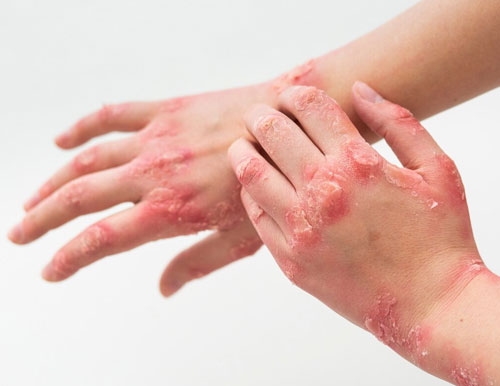Book an Appointment +91-95000 01177
Cholesterol is a fat produced by the liver. 80% of the cholesterol is made from carbohydrates and the rest 20% from ingested fats.
Our body needs cholesterol to function. It helps synthesize many hormones like Vitamin D3 (the sunlight hormone); steroid hormones like cortisol, cortisone and aldosterone in the adrenal glands; and sex hormones like progesterone, estrogen, and testosterone.
The process is so important that the body even has a mechanism to reabsorb and recycle it. For the body’s smooth functioning it is necessary to keep cholesterol levels within the optimum range.

Schedule Your Healing Journey: Book an Appointment for Treatment.
Book an AppointmentVery high or very low levels of cholesterol can both cause health problems. There are two types of cholesterol: high-density lipoproteins (HDL) and low-density lipoproteins (LDL). In terms of heart disease risk, HDL cholesterol is considered good (healthy), while LDL is considered bad (lousy). Total cholesterol is the sum of HDL and LDL. High HDL in the total cholesterol count does not give much cause for concern.
But, low levels of HDL and high LDL is a cause for worry, even if the total cholesterol reading is low. This increases the risk of heart disease as cholesterol builds up in the gallbladder and blood vessels. Such a condition also raises the risk of a stroke and insulin-resistant diabetes. Hence, the important measure of cholesterol is the HDL/LDL ratio.
Statins (cholesterol lowering medicines) block the liver from producing cholesterol. This results in the reduction of coenzyme q10, a heart protecting enzyme, produced by the liver. Prolong use of statins thus causes damage to the heart.
LDL is brain fuel. Insufficient LDL causes dementia, Alzheimer’s’, muscle wastage and even breast cancer. A few other effects of low cholesterol are:
- Depression
- Stroke
- Depletion of important vitamins D, E, C, & A
- Cancer
- Heart Diseases
Factors that may increase cholesterol
Hereditary: Certain enzymes are necessary for the body to balance the breakdown of fats and manage its storage. Any imbalance or abnormal production of these enzymes can lead to an accumulation of fats that can damage many organs in the body.
Gaucher’s disease: This hereditary condition is the most common type of lipid storage disease. It is caused by a deficiency of an enzyme called glucocerebrosidase and causes fat to collect in the brain, lungs, liver, spleen, kidneys and bone marrow. This causes the organs to enlarge, swell and malfunction and also causes bone disorders and painful lesions.
Metabolic disorders: Lipid oxidation disorders are caused by a deficiency of the enzymes needed to break down fats to produce energy. According to the National Institute of Neurological Disorders and Stroke, this decreases energy in the body and leads to delayed physical and mental development.
According to Ayurveda, the body is made up of five elements and so are all the things that we eat. Excess cholesterol, as per this ancient system of medicine, is simply a result of improper digestive fire.
Here’s the Ayurvedic explanation of the complex process in the human body:
Jattaraghni is responsible for digestion. While Bhutagni transfers the energy from the food consumed to the body to support the panchamahabutas in the system. Dhatvagni refers to tissue metabolism. According to Ayurveda, the body is made up of seven dhatus– Rasa (body fluids like lymph), Rakta (blood and its components), Mamsa (muscular system), Meda (adipose or fat tissue), Asthi (skeletal system), Majja (Bone marrow) and ShukraDhatu (reproductive system). The nutrients absorbed from the intestine are processed in each of these systems by the respective dhatvagnis for their nourishment, proper functioning and development. When the body is in a Dosha-free state, the Agni present is Samaghni.
Punarjani’s treatment is aimed at reducing the Ama and increasing all the Agnis, thereby balancing and reducing the excess cholesterol in the body and averting the risks of cholesterol-caused diseases.
Our Ayurvedic Arka medicine, Lipidsol –
- Corrects lipid profile and brings down harmful cholesterol
- Fights against plaque build-up in the arteries
- Does not increase the risk of diabetes
- Brings total relief from symptoms like chest pain, fatigue and breathlessness
- Helps in increasing metabolism and appetite
- Can be taken as a diet supplement
- Improves digestion of fats in the diet
Pnarjani’s medicines DO NOT contain hidden sugars, colours or preservatives and is safe for long-term use.
Happy Customers
"I had been struggling with diabetes for years, and nothing seemed to work effectively until I discovered Dr. E. Shaji Raj's Ayurvedic Arka Medicines. They have been a game-changer for me. My blood sugar levels are now under control, and I feel healthier than ever. Thank you, Dr. Shaji Raj!"
-John"I was skeptical about trying Ayurvedic remedies for diabetes, but after giving Dr. E. Shaji Raj's Arka Medicines a try, I'm a believer. These medicines have helped me manage my diabetes without the need for excessive medication. I feel more energetic and vibrant. Highly recommended!"
- Sarah"As someone who has tried various treatments to control diabetes, I can confidently say that Dr. E. Shaji Raj's Arka Medicines are the real deal. They are not only effective but also safe and natural. I've seen a significant improvement in my health, and I'm grateful for these life-changing remedies."
- RajeshAll our medicines are 100% ayurvedic arka medicine
- Formulated in the unique style of DR. E. Shaji raj. They are not some weak supplements. They are able to stand alone and efficiently cure diseases.
- Our medicines are extracts of medicinal plants, herbs, roots, tree barks in their purest forms
- No heavy metals, preservatives, sugar, Bad strong taste, artificial colours or hidden x-factors
- Our medicines can be used along with modern medicines till such time you wean yourself off modern medicine.
BlogsIn The Infinity Of Life, Take Time Out For The Soul
Read all blogsWith the drastic and unpredictable change in the climatic condition and increasing pollution in our environment the incidence of Sinusitis are increasing in our Country.
Read MoreThis informative piece sheds light on the nature of this chronic autoimmune condition, its potential causes, symptoms, and available treatment options.
Read More




